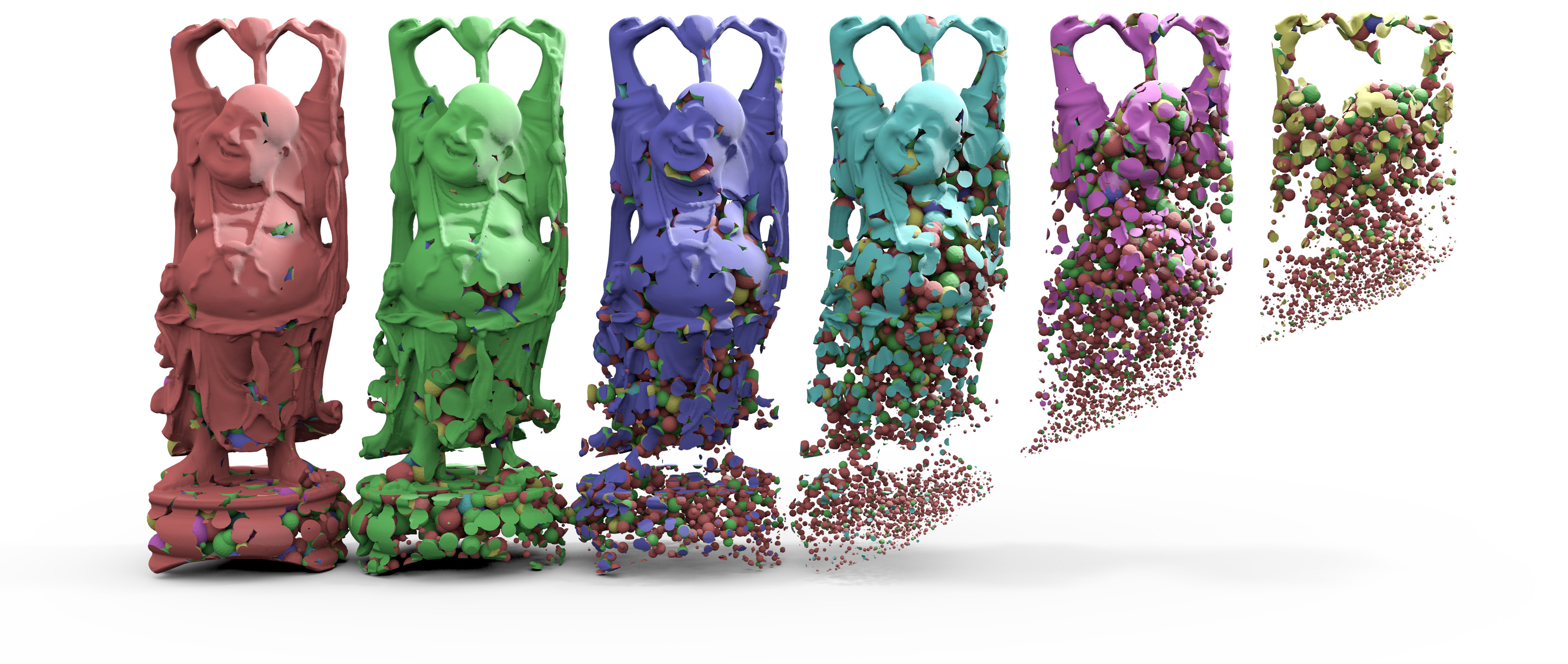Section:
New Results
QuickCSG: Arbitrary and Faster Boolean Combinations of N Solids
While studied over several decades, the computation of boolean
operations on polyhedra is almost always addressed by focusing on
the case of two polyhedra. For multiple input polyhedra and an
arbitrary boolean operation to be applied, the operation is
decomposed over a binary CSG tree, each node being processed
separately in quasilinear time. For large trees, this is both error
prone due to intermediate geometry and error accumulation, and
inefficient because each node yields a specific overhead. We
introduce a fundamentally new approach to polyhedral CSG evaluation,
addressing the general N-polyhedron case. We propose a new
vertex-centric view of the problem, which both simplifies the
algorithm computing resulting geometric contributions, and vastly
facilitates its spatial decomposition. We then embed the entire
problem in a single KD-tree, specifically geared toward the final
result by early pruning of any region of space not contributing to
the final surface. This not only improves the robustness of the
approach, it also gives it a fundamental speed advantage, with an
output complexity depending on the output mesh size instead of the
input size as with usual approaches. Complemented with a
task-stealing parallelization, the algorithm achieves breakthrough
performance, one to two orders of magnitude speedups with respect to
state-of-the-art CPU algorithms, on boolean operations over two to
several dozen polyhedra. The algorithm is also shown to outperform
recent GPU implementations and approximate discretizations, while
producing a topologically exact output without redundant
facets. This algorithm was published as Inria research
report [16] .
Figure
3. Intersection of 6 Buddhas with the union of 100,000 spheres
(total 24 million triangles). Computed in 8 seconds on a desktop
machine [16]
|
|


